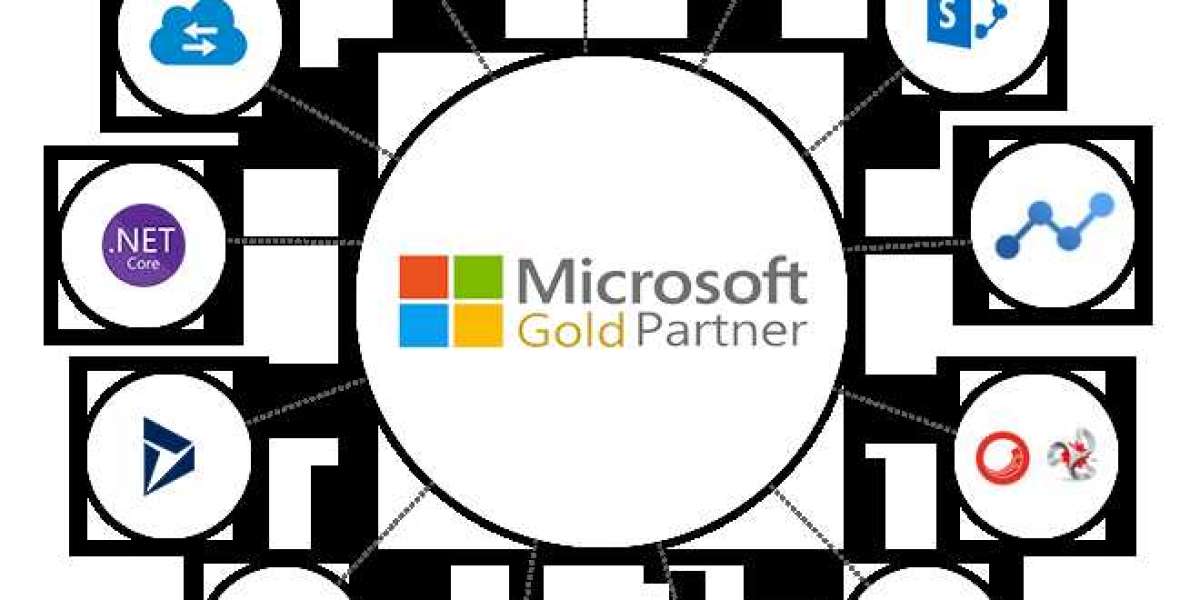In today’s highly competitive business environment, efficiency is the key to success. Organizations are constantly seeking ways to optimize their operations, reduce costs, and improve productivity. One of the most effective methods to achieve these goals is by leveraging advanced technology. Microsoft Technology Services provide a comprehensive suite of tools and solutions that enable businesses to enhance their efficiency across all levels of operations.
This guide will explore how Microsoft’s diverse technology offerings can improve business efficiency, focusing on cloud solutions, productivity tools, enterprise resource planning (ERP) systems, and data analytics.
The Role of Technology in Business Efficiency
Before diving into Microsoft’s specific offerings, it’s important to understand the role technology plays in business efficiency. Technology can streamline repetitive tasks, reduce human errors, improve collaboration, and provide real-time insights that allow for informed decision-making. By automating routine processes, companies can free up valuable human resources to focus on higher-value tasks. Moreover, technology enhances flexibility and scalability, enabling businesses to adapt quickly to changes in the market.
Leveraging Microsoft Azure for Scalable Efficiency
One of Microsoft’s most powerful offerings is Microsoft Azure, its cloud computing platform. Azure allows businesses to move their IT infrastructure to the cloud, which reduces the need for expensive hardware and maintenance costs. This not only saves money but also increases operational efficiency by providing scalable solutions that grow with the business.
Key Features of Azure for Business Efficiency:
- Scalability: Businesses can easily scale up or down based on demand without investing in new hardware.
- Cost Savings: Pay-as-you-go pricing models reduce unnecessary expenses, and Azure’s built-in cost management tools help track and optimize spending.
- Automation: Azure offers a range of automation tools, such as Azure Automation and Azure DevOps, which can help streamline IT processes.
- Business Continuity: Azure’s disaster recovery and backup solutions ensure that businesses can continue operating smoothly even in the face of technical issues.
How Azure Enhances Efficiency:
By migrating infrastructure to Azure, businesses can automate a range of tasks like system updates, backups, and data replication. Azure’s machine learning and AI services can be used to predict demand and optimize operations, reducing manual effort and increasing productivity. Additionally, Azure’s ability to integrate with other Microsoft services ensures a cohesive and efficient IT ecosystem.
Boosting Productivity with Microsoft 365
At the core of Microsoft’s productivity-enhancing tools is Microsoft 365. This suite of cloud-based services includes tools like Word, Excel, PowerPoint, Outlook, and Teams. These applications are designed to improve collaboration, streamline communication, and help employees manage their workload more effectively.
Key Tools in Microsoft 365:
- Microsoft Teams: A central hub for teamwork, offering video conferencing, chat, and file sharing.
- SharePoint: A collaboration tool that helps manage and share content, knowledge, and applications.
- Outlook and Exchange: These tools provide seamless email and calendar management, enhancing communication and organization.
- OneDrive: A cloud-based file storage service that allows employees to access and share documents from anywhere.
How Microsoft 365 Enhances Efficiency:
- Collaboration and Communication: Microsoft Teams and SharePoint make it easier for teams to collaborate, regardless of their physical location. Features like real-time co-authoring in Office apps ensure that employees can work together on the same document, reducing time spent on back-and-forth revisions.
- Anywhere Access: OneDrive and cloud-based Office applications allow employees to access their work from any device, whether they’re in the office or working remotely.
- Automation: Microsoft 365 integrates with Power Automate, allowing businesses to create workflows that automate repetitive tasks, such as approvals, notifications, and document management.
By centralizing communication and enabling efficient workflows, Microsoft 365 eliminates silos and helps employees focus on critical tasks.
Streamlining Operations with Dynamics 365
Microsoft Dynamics 365 is an integrated suite of ERP and customer relationship management (CRM) solutions. These tools are designed to streamline various business functions, from sales and customer service to finance and supply chain management.
Key Features of Dynamics 365:
- CRM Capabilities: Dynamics 365 offers powerful CRM features that help businesses manage customer relationships, track sales pipelines, and enhance customer service.
- ERP Solutions: The platform’s ERP capabilities allow businesses to manage finance, operations, and supply chains more efficiently.
- Integration with Microsoft 365: Dynamics 365 integrates with Microsoft 365, making it easier to share data and collaborate across departments.
- AI-Driven Insights: The platform leverages AI and machine learning to provide actionable insights, helping businesses make informed decisions.
How Dynamics 365 Enhances Efficiency:
- Process Automation: Dynamics 365 automates routine processes like invoicing, inventory management, and customer service workflows, reducing manual input and errors.
- Real-Time Data: By centralizing business data, Dynamics 365 provides real-time insights into financial performance, supply chain efficiency, and customer satisfaction.
- Improved Customer Service: Automated customer service processes, powered by AI-driven insights, ensure quicker resolution times and more personalized customer experiences.
With Dynamics 365, businesses can streamline their operations, improve customer experiences, and make data-driven decisions that enhance overall efficiency.
Unlocking Data-Driven Efficiency with Power BI
Efficient decision-making relies on having access to accurate and timely data. Microsoft’s Power BI is a business analytics service that enables businesses to visualize their data and gain actionable insights.
Key Features of Power BI:
- Data Integration: Power BI integrates with a wide range of data sources, allowing businesses to combine data from different systems.
- Interactive Dashboards: Power BI provides customizable dashboards that give an at-a-glance view of key performance indicators.
- Real-Time Analytics: With Power BI, businesses can track real-time metrics, ensuring that they can respond quickly to changes in the market.
- AI and Machine Learning: Power BI leverages AI tools to help businesses uncover hidden patterns and trends in their data.
How Power BI Enhances Efficiency:
- Data Visualization: Power BI’s intuitive interface allows users to create charts and graphs that make complex data easier to understand, saving time and enabling faster decision-making.
- Automated Reports: Businesses can schedule automatic reports and updates, ensuring that stakeholders have access to the latest data without manual intervention.
- Collaborative Insights: Power BI integrates with Microsoft Teams and SharePoint, allowing users to share insights and reports across the organization seamlessly.
By providing businesses with real-time insights, Power BI enables faster, data-driven decision-making that can lead to increased operational efficiency.
Conclusion
Enhancing business efficiency is crucial in today’s fast-paced digital world, and Microsoft Technology Services offer the tools and solutions necessary to achieve this goal. From Microsoft Azure’s cloud capabilities to the productivity-boosting features of Microsoft 365, the operational improvements provided by Dynamics 365, and the data-driven insights of Power BI, Microsoft’s ecosystem enables organizations to streamline their operations, reduce costs, and improve productivity.
By adopting and fully leveraging Microsoft Technology Services, businesses can enhance efficiency across all aspects of their operations, allowing them to stay competitive and adapt to the ever-evolving technological landscape. As these tools continue to evolve, they will provide even more opportunities for businesses to optimize their workflows and drive long-term success.








